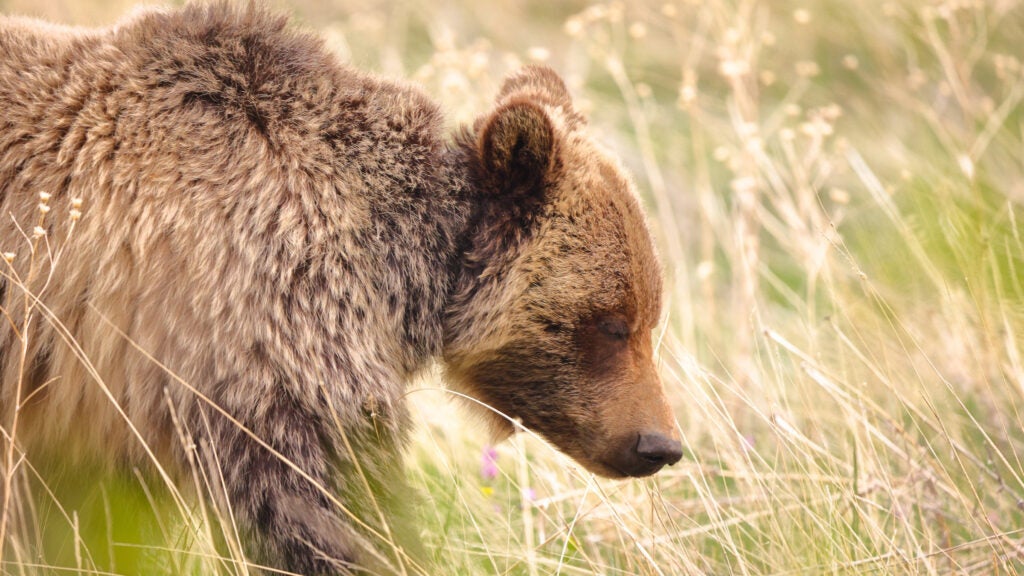No products in the cart.
Outdoor Adventure
A Woman Was Attacked and Killed by a Grizzly Bear Near Yellowstone
Heading out the door? Read this article on the new Outside+ app available now on iOS devices for members!
Download the app.
A woman died in a rare fatal grizzly bear encounter near Yellowstone National Park over the weekend, sparking a closure of the area as authorities searched for the animal involved, the Montana Department of Fish, Wildlife, and Parks (FWP) said today.
In a news release, the agency said that another hiker discovered the victim’s body on the Buttermilk Trail near West Yellowstone on Saturday morning and notified authorities. FWP staff and officers from other agencies who responded noted that the body had wounds “consistent with a bear attack,” and found tracks from an adult grizzly and at least one cub in the area. Officers did not find bear spray or a firearm on the deceased woman or in the area.
Because the incident occurred near a residential area and a high-use off-roading trail, wildlife officers began working to capture the bear involved. Despite searching the area from an aircraft, however, they have been unable to locate it so far. The portion of the Custer Gallatin National Forest around the site of the attack remains closed.
Bear attacks of all kinds are rare, with the United States averaging roughly two fatalities a year over the past few decades. This week’s death marks the country’s third reported incident in 2023, following a polar bear attack in Alaska which caused the deaths of two people and a black bear attack in Arizona which caused the death of one. In both cases, bystanders shot and killed the animals involved.
Experts recommend that people recreating in grizzly country carry bear spray, which is easier to use and has a better track record of repelling aggressive bears than firearms. In an interview with Backpacker earlier this year, bear biologist and host of Tooth and Claw Podcast Wesley Larson compared carrying bear spray to wearing a seatbelt in a car.
“Sometimes people ask me, ‘What do you do in a bear encounter?” And I always say, “Get your bear spray out, and get it ready,’” Larson said. “They’re like, ‘What if I don’t have bear spray?’ Well, you’re already sacrificing your control of that situation. You’re not wearing your seatbelt, you’re deciding that you’re going to take a bigger risk than you need to.”
On Friday, the National Park Service announced that it had euthanized a food-conditioned grizzly in Glacier National Park after the bear repeatedly approached or charged visitors in the park over the past two months. The NPS said the animal was the first food-conditioned bear it had euthanized in the park since 2009.
Source link

